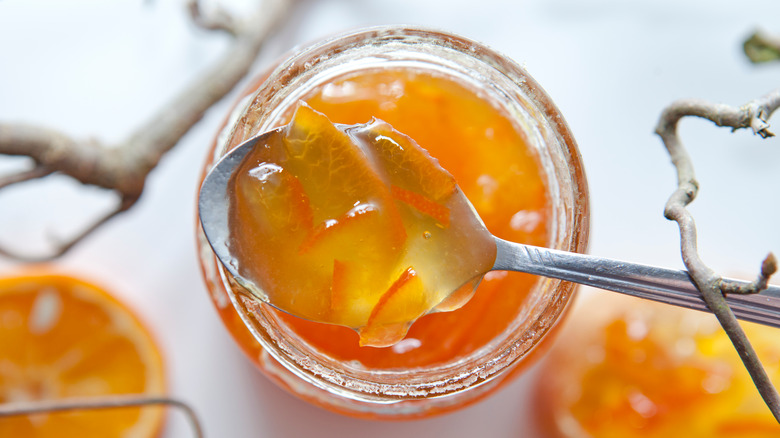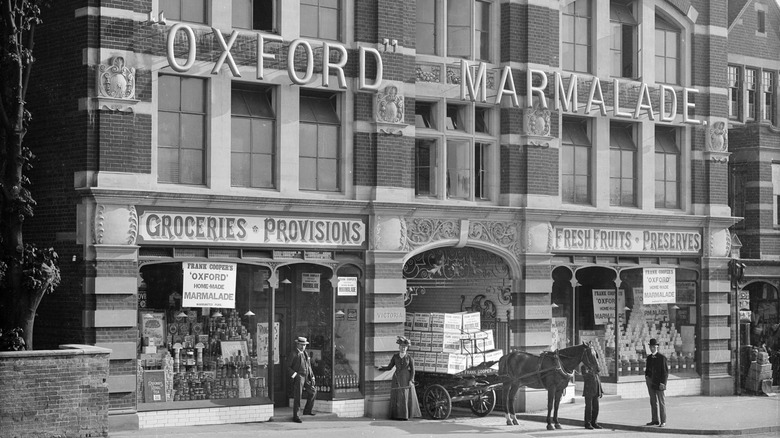Oxford Marmalade, The Fancy Condiment With Tragic Connections
As ubiquitous to the British identity as Earl Grey tea and biscuits, bittersweet orange marmalade is a culinary staple of the U.K. Originating in Scotland as a thick, sticky spread made from bitter Seville oranges, it has maintained its honored place as a breakfast and tea time item for over 250 years. Of the many beloved brands, Frank Cooper's Oxford Marmalade was a unique style that used a bit of brown sugar as well as regular granulated sugar. The resulting flavor is more complex than traditional marmalade, with an interesting molasses note added to the mix.
Made from a recipe by Cooper's wife and sold at his grocery store in the 1870s, Oxford Marmalade became associated with the academic community surrounding it, nourishing the teachers and students nearby. Later, though, the popular spread would become more readily associated with tragic journeys. It was present in not one but two disasters in 1912 — the Titanic and the failed Robert Falcon Scott South Pole expedition both stocked this particular marmalade. Unfortunately, for a poor unwitting few, Oxford Marmalade was an element of their final meals. So how did this beloved condiment become enmeshed with two dismal historical events?
The condiment of choice for doomed adventures
Let's start with the first (chronologically) of the tragedies, Robert Falcon Scott's Terra Nova Expedition. Launched in 1910, Scott led a crew on a dash to the South Pole. Similar to the sponsorships between sports stars and corporations of today, many food companies jumped at the chance to provide Scott's expedition with food in exchange for a celebrity endorsement. One such brand was Frank Cooper's Oxford Marmalade.
However, by January of 1912, Scott and five other men had battled to the famed spot only to learn that Roald Amundsen's team had reached it first. On the way back, a series of unfortunate events — including a drastic dip in temperatures — resulted in Scott and his men meeting a frigid, fatal end. Among the artifacts Scott left behind were his journal and an unopened tin of Oxford Marmalade.
As for the Titanic, Frank Cooper's Oxford Marmalade was a celebrated brand offered by the White Star Line, the cruise line behind the Titanic. Like its sister cruise ships, the Titanic included Oxford Marmalade on its First Class breakfast menu; on April 14, 1912, some First Class passengers enjoyed their final breakfast with a helping of Oxford Marmalade.
Today, Oxford Marmalade is still available for purchase — although it no longer enjoys the popularity it once had, as it is a particularly strong-tasting marmalade. But for those with a taste for robust marmalade with a touch of tragic history, Oxford Marmalade might be worth a try.

